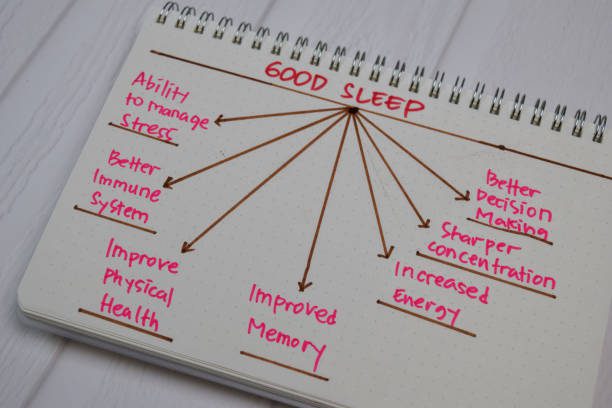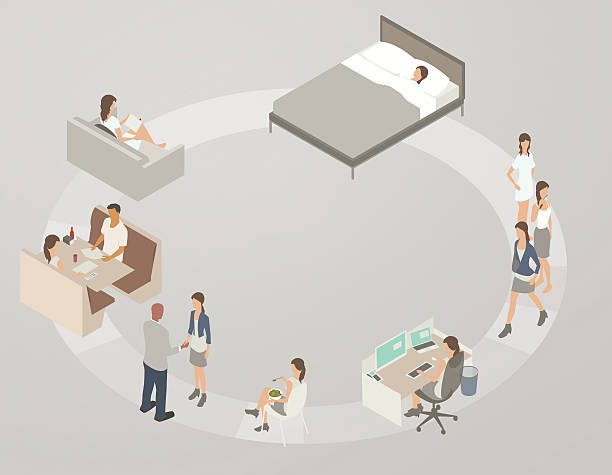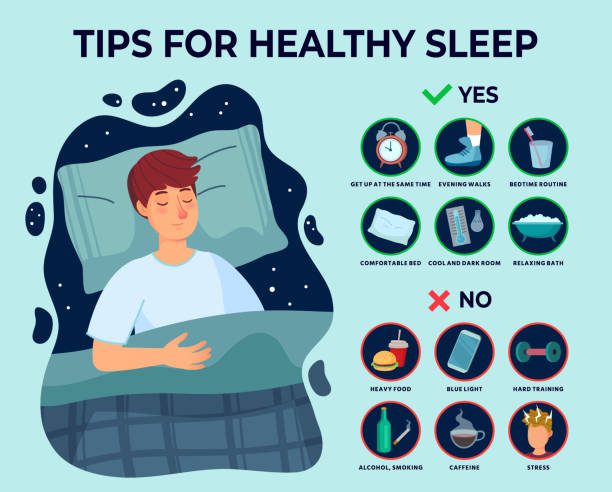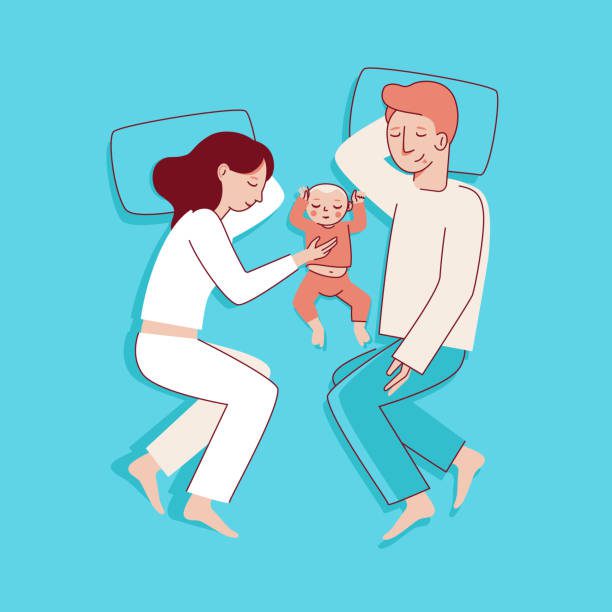This content is for informational and educational purposes only. Always consult a qualified healthcare provider.
Last Updated on February 5, 2024 by Grace Oluchi
Sleep is a vital part of our overall health and wellbeing. It is important for the body to rest, repair, and recharge. During sleep, the body performs a variety of functions that are critical for physical and mental health. Unfortunately, many people do not get enough quality sleep, which can have negative consequences for their health and wellbeing. In this article, we will explore the importance of it for overall health and wellbeing.
📋 Table of Contents
What is Sleep?
Sleep is a natural state of rest that occurs in cycles throughout the night. It is characterized by reduced consciousness, activity, sensory awareness, and responsiveness to external stimuli.


During sleep, the body performs a variety of functions that are critical for physical and mental health. These include:
- Repair and restoration of tissues and cells: the body repairs and restores tissues and cells that have been damaged during the day. This includes mending muscle tissue, services the immune system, and mending damaged skin cells.
- Consolidation of memory: the brain secures memories and processes information that has been learned during the day. This helps to improve memory and cognitive function.
- Hormone regulation: the body regulates the production of hormones such as cortisol, which is important for stress management, and growth hormone, which is important for tissue repair and growth.
- Regulation of metabolism: helps to control the body’s metabolism, including the balance of glucose and insulin levels. This is important for maintaining healthy weight and preventing chronic diseases such as diabetes.
The Importance of it for Overall Health.
Sleep is essential for physical health. Lack of it has been associated with a variety of negative health end result, including:
- Increased risk of obesity: it has been linked to an increased risk of obesity. This is because sleep deprivation can disrupt the hormones that regulate appetite and metabolism, leading to increased food intake and decreased physical activity.
- Increased risk of diabetes: it has also been linked to an increased risk of diabetes. This is because sleep deprivation can disrupt the body’s glucose metabolism, leading to insulin resistance and increased blood sugar levels.
- Increased risk of heart disease: it has been associated with an increased risk of heart disease. This is because sleep deprivation can lead to high blood pressure, inflammation, and other factors that contribute to heart disease.
- Weakened immune system: it can weaken the immune system, making it more difficult for the body to fight off infections and illnesses.


The Importance of it for Mental Health.
Sleep is also essential for mental health. Lack of it shows it is linked to a variety of negative mental health outcomes, including:
- Increased risk of depression: it has been linked to an increased risk of depression. This is because sleep deprivation can disrupt the brain’s neurotransmitters, which are important for mending mood.
- Increased risk of anxiety: it has also been linked to a grown risk of anxiety. This is because sleep deprivation can lead to grown levels of the stress hormone cortisol, which can add to feelings of anxiety.
- Impaired cognitive function: it can impair cognitive function, including memory, attention, and decision-making.
- Decreased quality of life: it can decrease quality of life, leading to decreased productivity, decreased social functioning, and decreased overall wellbeing.
How Much of it Do We Need?
The amount of sleep that we need varies depending on our age and other factors.


Generally, adults need 7-9 hours of sleep per night, while children and teenagers need more. However, some people may need more or less of it than others, depending on their individual needs and circumstances.
Tips for Getting Better Sleep.


- Stick to a regular sleep schedule: Going to bed and waking up at the same time every day can help to regulate the body’s internal clock and improve its quality.
- Create a sleep-conducive environment: Make sure that your bedroom is dark, quiet, and cool. Use comfortable bedding and a comfortable mattress.
- Avoid caffeine and alcohol: Caffeine and alcohol can interfere with its quality, so it is best to avoid them before bedtime.
- Practice relaxation techniques: Relaxation techniques such as deep breathing, meditation, or yoga can help to reduce stress and improve its quality.
- Limit screen time: Exposure to screens such as phones, tablets, and computers can interfere with its quality. It is best to limit screen time before bedtime.
- Exercise regularly: Regular exercise can help to improve sleep quality, but it is best to avoid exercising close to bedtime.
The Key Takeaway.
Sleep is a vital component of our overall health and wellbeing. It is essential for physical and mental health, and lack of it can have negative consequences for our health and wellbeing. By prioritizing it and adopting healthy habits, we can improve our quality of life and reduce our risk of chronic diseases and other negative health outcomes.
Why is sleep important for overall health?
Sleep plays a crucial role in many aspects of our health, including physical health, mental health, and cognitive function. It helps our bodies to repair and regenerate, strengthens our immune system, and supports healthy brain function.
What are the consequences of sleep deprivation?
Sleep deprivation can have a range of negative consequences on our health, including impaired cognitive function, decreased immune function, increased risk of chronic diseases, and increased risk of accidents and injuries.
How much sleep do I need each night?
The recommended amount varies depending on age and individual needs. Most adults require 7-9 hours of sleep per night to maintain optimal health and function.
What are some tips for improving sleep quality?
There are many strategies that can help to improve sleep quality, such as establishing a regular schedule, creating a comfortable environment, avoiding electronic devices before bedtime, and practicing relaxation techniques.
Can poor sleep quality be a symptom of an underlying health condition?
Yes, it can be a symptom of underlying health conditions, such as sleep apnea, depression, anxiety, or chronic pain. If you are experiencing persistent sleep disturbances, it is important to consult with your healthcare provider to determine the underlying cause.

